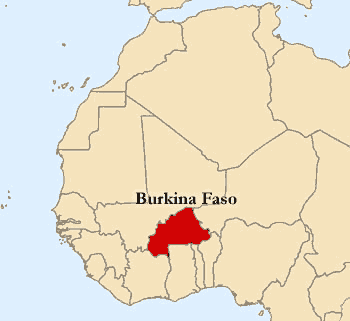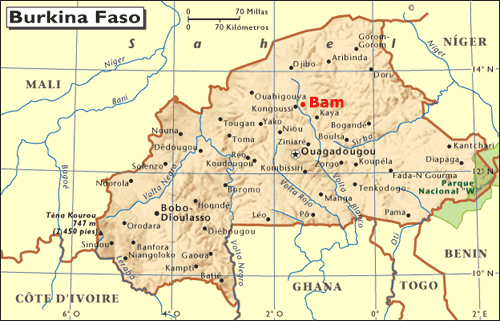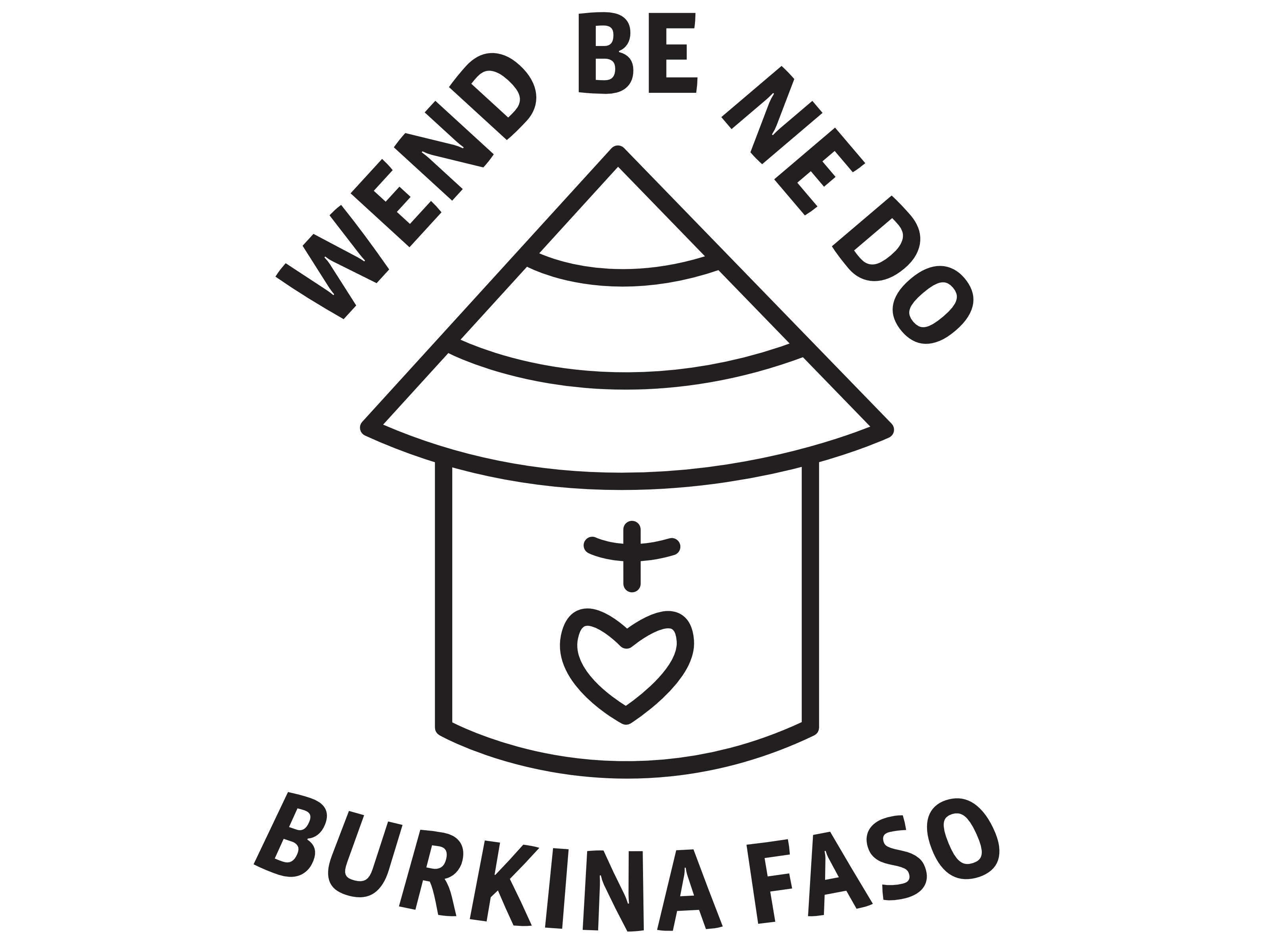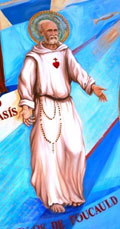
In 1.997 thirty people met at the Polyvalent Centre of Ouagadougou (today Paul ZOUNGRANA centre) with the objective of deepen on the Charles de Foucauld spirituality. This meeting marked the base of the Charles de Foucauld spiritual family in Burkina Faso, today it regroups fifty members: priests, religious and not religious people.
The Charles de Foucauld Association comes up from this family. It doesn’t have a political ideology and it wants to follow Charles de Foucauld´s footsteps, to lead a life of abnegation and equality and to fight side by side with the smallest, i.e., fighting for the poorest.
The members of the association come from all over the Burkina and represent different professional backgrounds. They want to lead a social community life with mutual help.
The Charles de Foucauld Spiritual Family is present in the diocese of Ouagadougou, Ouahigouya, Kaya, Fada N’gourma, Bobo-Dioulasso, Déodugou Koupéla.
The Program
Context of the Program’s zone
Burkina Faso is one of the poorest countries of the world (173th out of 175 countries of the world as the classification of the United Nations Development Program UNDP). It is located in the heart of West Africa. With a population of about 11.5 million, more than 9 million of which work in agriculture and crafts.
In Ouagadougou, capital of the country, 80% of the population make their living out of informal sectors. As a result of the devaluation of the CFA franc in 1.993, licenses that follow privatizations, the weak development of the industry, the inflation , at least 70% of the families in Ouagadougou have a precarious existence.
Program Justification
During the mid 80`s the World was shaken with the appearance of a new disease, tagged as incurable: AIDS.
Certain images present sick persons, numbers, and previsions about risk population. The most alarming speculations ran loose. The Scientific Community undertakes to assume this challenge and, meanwhile, information and prevention campaigns start.
Differences appear fast in the Scientific Community about the etiology and nature of this new disease. A dissident minority tries to reject the official thesis without proposing an alternative. Aids is mainly localized in the sub-Saharan Africa. People talk today about it like a development problem, consequence of poverty in a country without any scientific or material tools. In 2.003 it is estimated that 40 million people in the world lived with Aids, out witch 2,5 million were children under 15. The Sub-Saharan Africa is the more affected region with around 3,2 million of news contaminations and 2,3 million dies in 2.003. 26,5 million of Africans live with Aids, as 2.003 estimations. “The Aids epidemic continues extending, it doesn’t have taken the ceiling” Dr. PIOT main responsible of Onusida explains. Nowadays, there are pharmacy treatments especially for people infected with HIV. Unfortunately, they are not accessible for everyone.
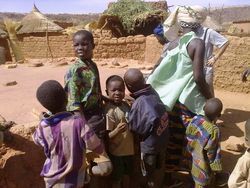
Before the AIDS epidemic, big differences already existed. For example, in 1.988 life expectancy was 42 years old in Africa, while in Western countries was 77. Death rate on birth was 140 per 1.000 in non-developed countries and 27 per 1.000 in developed countries. In 1.990 died 15 children under 1.000 in the industrialised countries, while this rate in the non-industrialised countries was 79 under 1.000. A OMS sounding with 91 countries non-developed shows that in 1.970 only 29% of the population had access to drinking water.
In Burkina Faso, the fight against AIDS is a current issue. Some treatment centres have seen their light. Some Associations and Organizations are above the issue. On April and on September of 2.003 the Burkinabish state has singed an agreement with Indian and Brazilian laboratories to import the antiretroviral (ARV). According to recent estimations, the percentage has decrease by 1%. From 7% it has lower to 6%.
The Fraternité Charles de Foucauld of Burkina Faso doesn’t want to stay indifferent in front of the damage of the persons who live with Aids. They want to stay near them, to contribute to create a positive dynamic that allows to these people to have new perspectives about their problem and the society. This starts with an articulated attention in the reception, dialogue, mediation and disposition of new spaces of expression and to share.
Objectives
Global Objective
The Global objective of the Program is to ensure a global attention to the people who live with AIDS. It is important to see human beings in its integrity, the human being in their different dimensions. This includes people from all ages and it is important to emphasize the big number of children who have Aids, orphans of dad, mum or both, or children with a risk situation or vulnerability for their future like orphans.
Specific Objectives
- To restore self-confidence and the desire to fight in each person favoured by the Program through the reception and first contact.
- To stabilize the viral weight of each favoured of the Program for the antiretroviral administration.
- To ensure to each beneficiary a general health program acceptable for the care of their opportunist disease.
- To return to each favoured of the Program the happiness of living, promoting a group dynamic and founding a new confidence climate in their around thanks to the activities.
- Attention to the orphans and children with risk in the nutritional, physiological and medical aspects.
Expected Results
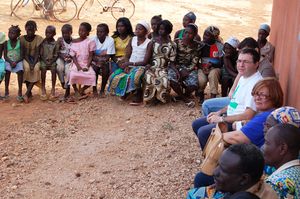
- Each beneficiary of the Program founds confidence and desire of fighting thought the talking space created.
- Each beneficiary of the program presents a better physic and welfare psychic state thanks to the mediation and resolutions.
- The life expentancy of each beneficiary of the Program is considerable extended due to the attention carried on.
- The HIV- Aids is not considered like a catastrophe in their lives, it will be considered like a chronic disease.
- People with Aids are not marginalized.
Main Activities
Two houses location, equipment and operation
The Fraternité Charles de Foucauld outpatient department of Burkina is called “Centre Wend be ne do”
The centre “Wend be ne do” for the attention to HIV people, with a prevision to attend more people than now inside two new buildings builded on the ground floor, next to Medical Diocesain de Bam centre.
Premises will be equipped for the administration needs, reception and attention. This equipment contains computer tools, with Internet connexion to have a better communication.
The “Wend be ne do” centre will have equipment of mobility.
Staff Organization
Besides the manager of the centre, staff will be composed by one doctor, one psychologist, one nurse, one permanent service person and two assistants.
The doctor, specialist in HIV- Aids, he will move to the centre for consultations. The psychologist will assure psychological attention for the patients. The nurse will be more regular than the doctor to assure normal cares. The permanent service person and eventually the assistants will have a correct training to assure the centre administration, reception of the beneficiaries and the treatment of their cases.
One supply service contract will join the doctor, the psychologist and the nurse to the centre, while the permanent service person and the two assistants will work at the beginning volunteering, and will be rewarded though a budget established for that.
The centre will have resources for the volunteers to assure different benefits for the patients.
Attention to HIV people
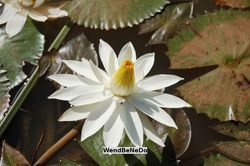
The centre will be endowed with a medicine chest for the antiretroviral and the products for the opportunist disease treatments. Staff will make priority to good communication, to restore their confidence as a way to achieve better being.
Resources on physical therapy will be used for the well being of the patients.
Sessions between HIV persons will be organized to found the way of living together and to allow them to minimize their complex.
A propitious framework will be created for the search and the action in a view to value competences and aptitudes from HIV people.
In fact, being productive is a good reason to make them feel useful in society, and to desire to improve their jobs, and then their lives.
Leisure time sessions: excursions, games, projections, conferences, different culture activities…they are organized only for the VIH people benefits.
Often they will receive visits to their homes, from Fraternité Charles de Foucauld or from other organizations and personalities to have a spiritual attention assured and to leave aside the idea of being isolated.
Location
In Kongoussi, Bam province, in Burkina Faso (former Alto Volta), next to the Médical Diocésain Centre, Notre Dame of the Misericordy, of the diocese. Ouahigouya.
We attend people from more than forty villages from the Bam and Kongoussi areas, visiting and helping them to take part on the activities organized by WEND BE NE DO’s head office and having a follow up of their disease.
